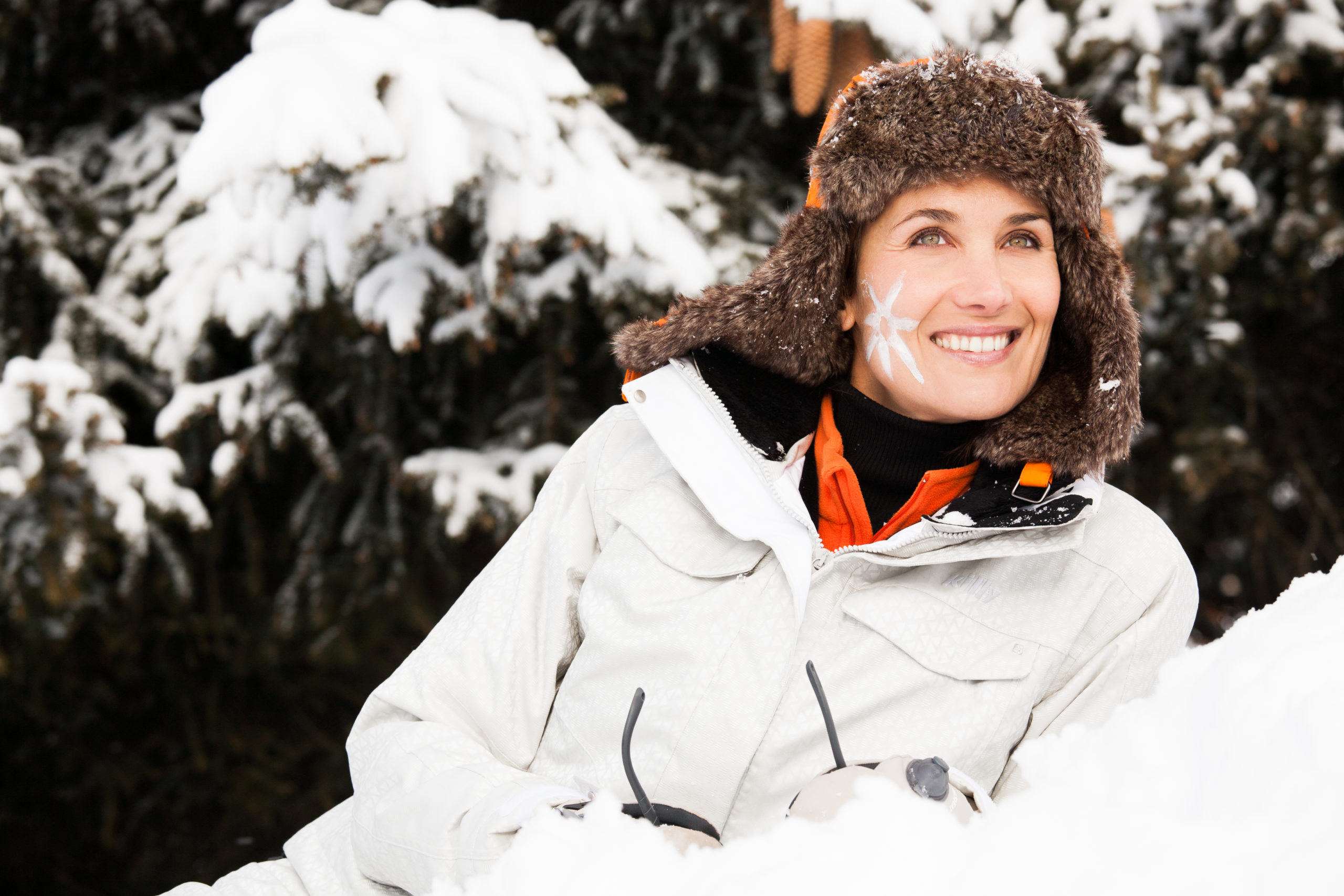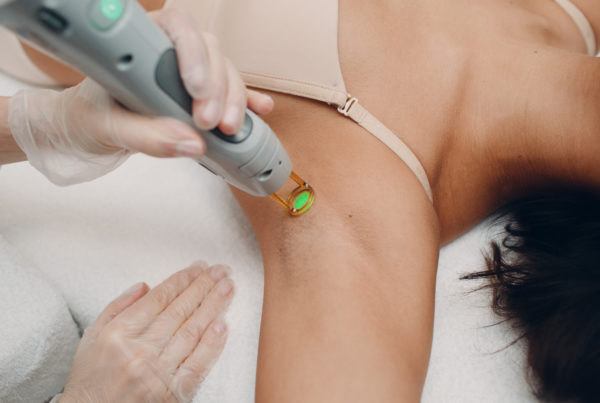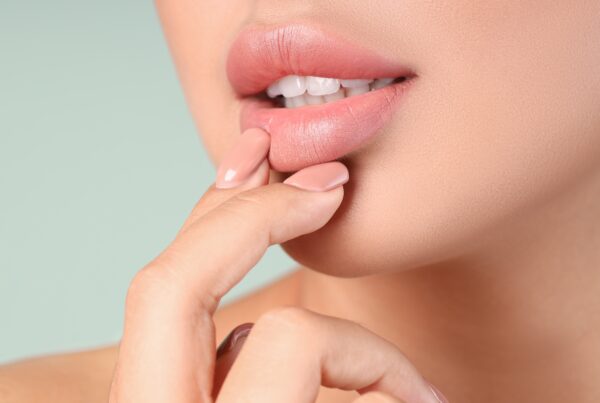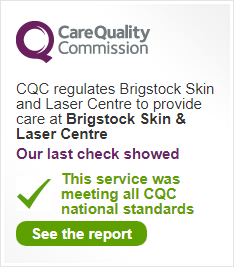6 reasons NOT to skip sunscreen in the winter

We look at the reasons why you should keep applying UV protection
The summer holidays are over and we’re all feeling the change of season. Cooler days and longer nights are beginning to set in on the run up to Christmas.
Unless you’re lucky enough to have booked a winter sun break, then you may feel that it’s now safe to skip the sunscreen. But you may want to think again! Sunscreen has an important role to play, even in the winter months.
- Your skin needs protecting from UVA all year
The ultra violet (UV) rays that affect us are of two different types, UVA and UVB. While UVB rays are strongest on sunny summer days, UVA continues to have an effect even in the winter and can penetrate deeper into your skin. These rays are associated with causing damage to deeper layers which leads to premature aging and an increased risk of skin cancer.
You may believe clouds block sunshine and UV rays, so it may come as a surprise to learn that 80 percent of rays can still get through the darkest of clouds.
- Be aware even when you’re indoors
Do you sit near a window in your office, whether that’s in your home or at your workplace? Because while glass does block UVB rays, it doesn’t block UVA. If you’ve sat in a car or bus on a long journey when sun is pouring through the window, you’ll know it can get uncomfortable, even in winter. What you don’t see is the effects of the UVA rays. Sunscreen will ensure that these effects are minimised.
Some studies suggest that the blue light from screens can have a negative impact on your skin and that sunscreens containing zinc oxide or titanium oxide – or a mix of the two, offer some protection against blue light as well.
- Keeping careful when you’re on the slopes
Many of us enjoy visiting ski resorts during the winter months, whether that’s our national slopes in Scotland, or the many European or American ski destinations. Pure white snow is simply amazing – but it does reflect the UV rays and actually makes them stronger when they reach your skin. When you’re skiing you’re at a higher altitude; research believes that UV radiation increases the higher to above sea level you are by as much as 5 percent per 1000 feet.
You may think you’re safe because you’re wearing goggles, helmet and a thick coat, but don’t forget you’ll be taking these off when you stop for a lunchtime snack or a post-ski gluhwein. It’s definitely a good idea to apply sunscreen before you leave in the morning and reapply to exposed areas, especially your face, when you take a break.
- Keeping your sunscreen topped up
Long days of sunshine, sunbathing and swimming prompt us to reapply sunscreen during the summer months. But in the winter months, rain and winds can erode the layer of sunscreen and leave you exposed to those damaging UV rays. If you’re exposed to the weather on your walk to work, on your daily jog or dog walk, then it really is worth reapplying during the day.
- Thinking about the bigger picture
Exposure to the sun runs many risks, not least an increased risk of skin cancer. In addition, the damaging effect of UVA and UVB rays on the skin is wide-ranging, from sunburn and brown spots to faster skin ageing. If you want to avoid skin concerns including fine lines and wrinkles, rough, uneven skin, skin blotches, hyperpigmentation, sun spots and sallowness, you should be looking to include sunscreen in your skincare regime all year-round.
- Which products to use?
In our opinion, no matter what the price point, we would encourage you to use sunscreen as part of your daily regime – after all, some sunscreen is better than none! However, with such a huge choice available, it’s worth looking at what’s in the products you’re interested in to make sure you get the best protection.
Brigstock Skin & Laser Clinic recommends Obagi Sunscreens which are available individually or as part of a prescribed skincare system, such as Obagi Nu-Derm.
Obagi sunscreens offer UVA and UVB protection, and some also provide Infrared Radiation protection, to reduce the signs of skin ageing and keep your skin looking healthy.
Key ingredients include:
Physical UVA/UVB protection
- Zinc Oxide
- Titanium Dioxide
Chemical UVA/UVB protection
- Homosalate
- Octinoxate
Plus
- Ceramides
- Glycerin
- Hydromanil™ Technology
- L-ascorbic Acid (Vitamin C)
- Niacinamide
As Obagi Ambassadors, sunscreen is available to buy from our clinic – whether you’re a patient or not. We will be happy to talk to you about what the difference is between this and other sunscreens, and why it’s worth investing in a product that has been rigorously tested by the Obagi scientists. While there are many different products to choose from, in our opinion opting for a skincare product from a reputable company will give you confidence in the quality of your purchase and minimise any risk of an adverse reaction. Lower quality products can cause skin problems such as breakouts, redness and dryness, while good quality products are often available in specific formulations to prevent such issues from happening.
What’s more, a quality sunscreen may not only protect your skin from the negative effects of the sun’s rays but could even improve the appearance of your skin at the same time.
You will get the best advice from a clinic with proven results and happy clients, so make sure you read a good selection of reviews, ideally for the treatment or products you are considering.
The experience of the clinic’s team will ultimately have an impact on the quality of the advice you receive. For example, at Brigstock Skin & Laser Centre our lead clinician is Dr Vajpeyi who also heads up award-winning NHS dermatology services in several areas of London. Her recognised expertise ensures that our treatments produce excellent results. You can check out our reviews and find out more about our results guarantees – these will give you a good benchmark to compare with other clinics. If you’d like to make an appointment call 020 8683 6730





